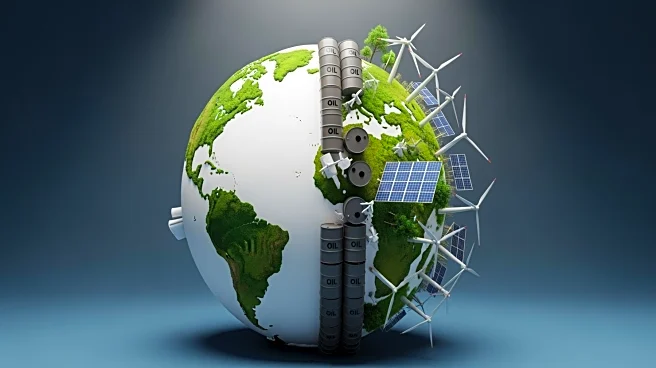What's Happening?
At an energy conference in Athens, U.S. energy and interior secretaries emphasized the importance of fossil fuels over renewable energy, urging Europe to increase its reliance on U.S. oil and gas. The
U.S. has become Europe's top oil and gas supplier, aiming to replace Russian energy imports. U.S. Energy Secretary Chris Wright criticized the global investment in renewables, stating that despite significant spending, these sources only accounted for 2.6% of global energy last year. The Trump administration's policy shift focuses on oil and gas 'domination' as a key driver for the U.S. economy and international influence.
Why It's Important?
The U.S. push for fossil fuels over renewables highlights a significant policy divergence with the European Union, which is committed to reducing emissions. This stance could impact international energy markets and geopolitical relations, as Europe seeks to diversify its energy sources away from Russian imports. The emphasis on oil and gas may bolster U.S. economic interests but could also face criticism from environmental groups advocating for sustainable energy solutions. The debate underscores the challenges in transitioning to renewable energy and the complexities of global energy politics.
What's Next?
As the U.S. continues to promote fossil fuels, European countries may face pressure to balance energy security with environmental commitments. The ongoing discussions could lead to new energy agreements and investments, potentially reshaping the global energy landscape. Stakeholders will likely monitor the impact of U.S. policies on European energy strategies and the broader implications for climate change initiatives. The outcome of these negotiations could influence future energy policies and international collaborations.








